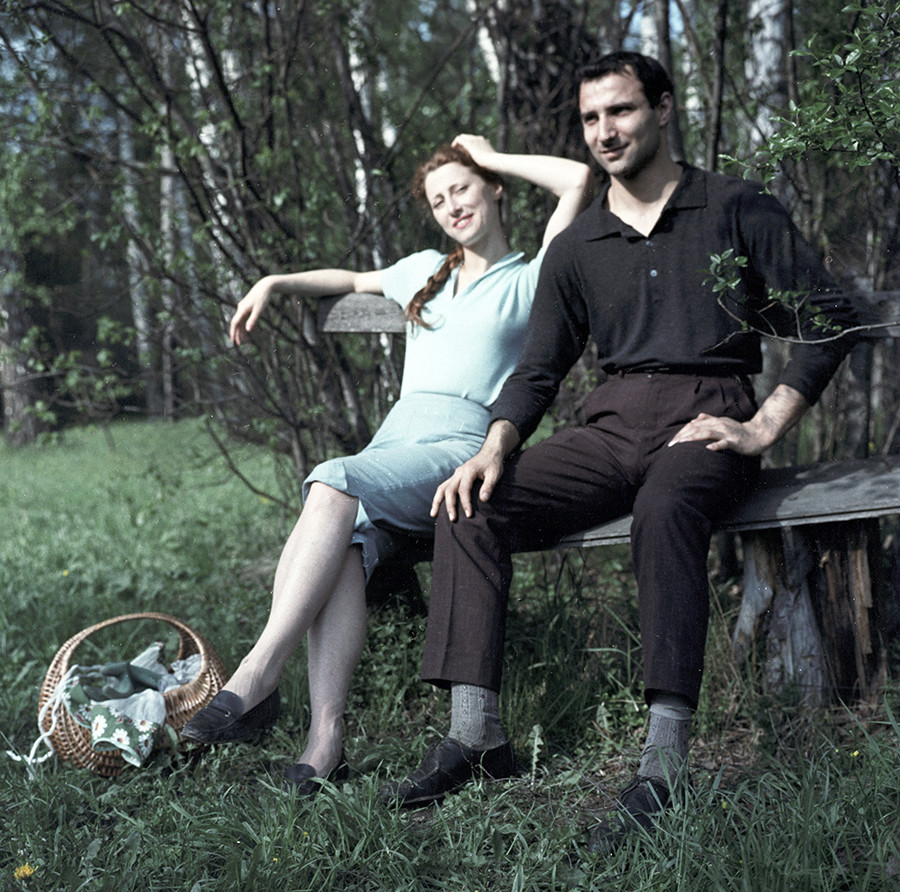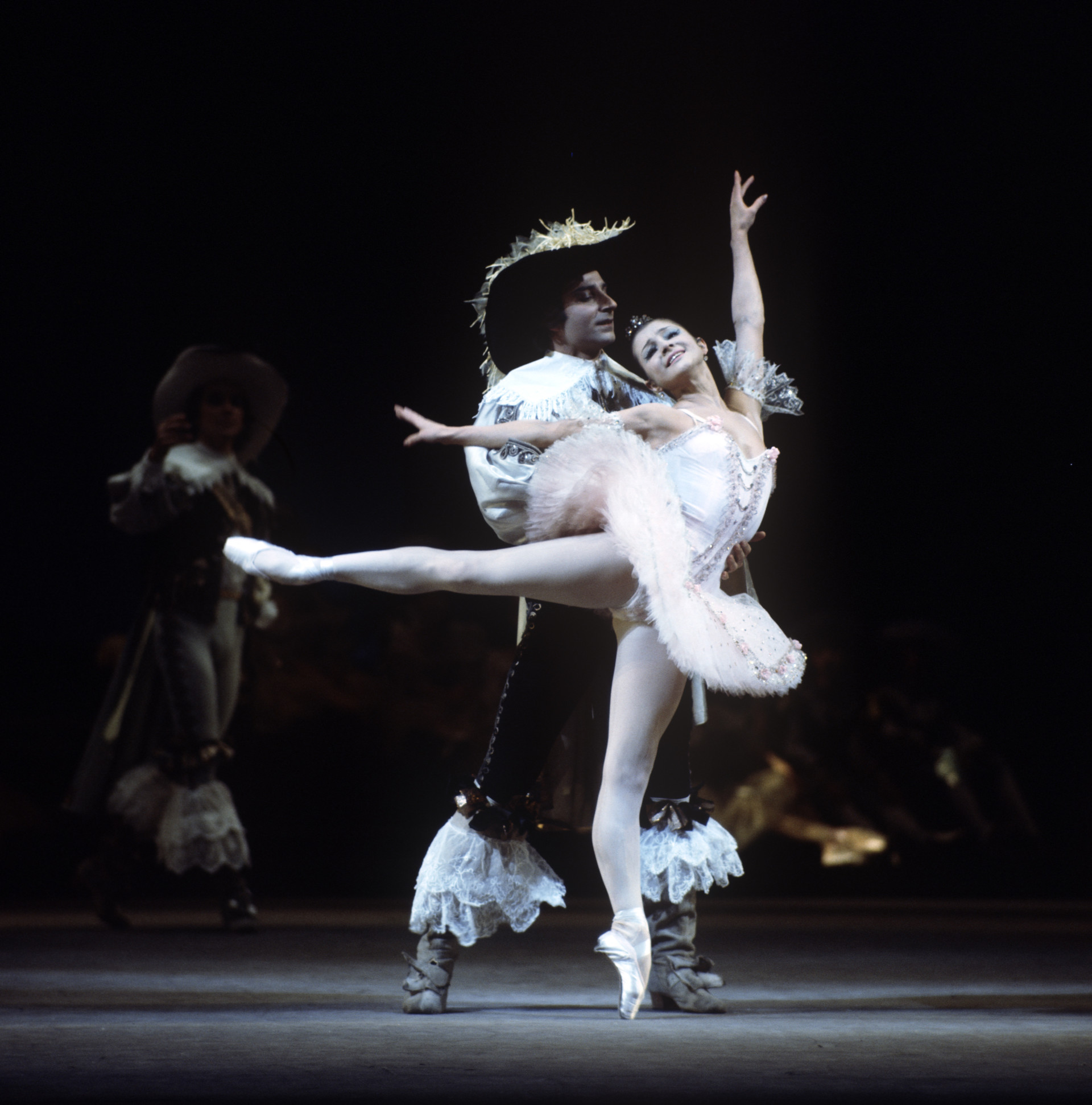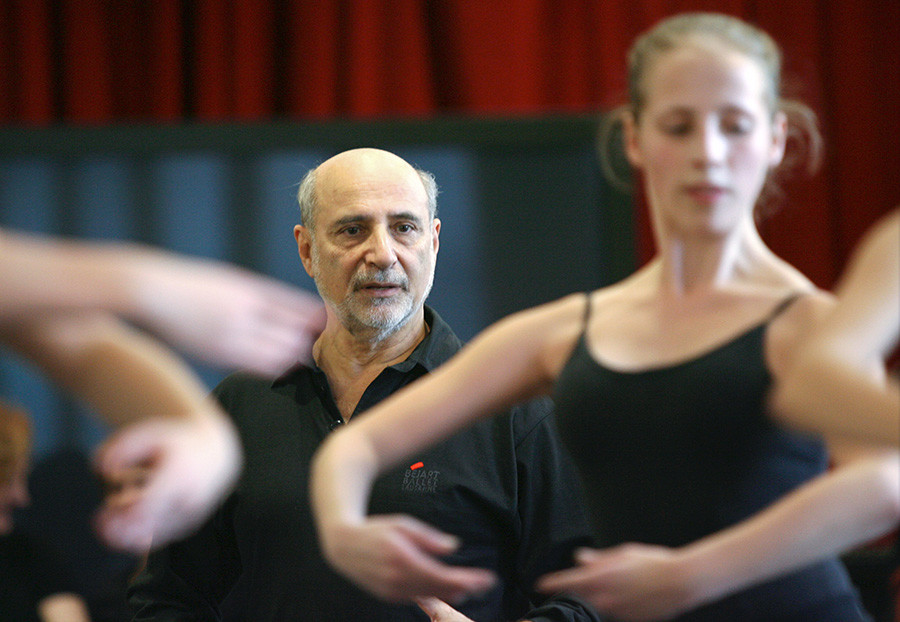Maya Plisetskaya and her brother Azary: The Soviet ballet tour of America

"In my
Azary is the brother of legendary ballerina Maya Plisetskaya, himself a former ballet dancer and later a prominent ballet teacher. In the aforementioned chapter of his new book of memoirs, which has just been released by Elena Shubina Publishers, he looks back at the Bolshoi Theater's famous tour of the U.S. and Canada in August 1962. A total of 120 dancers took part in the three-and-a-half-month tour; for
Russia Beyond publishes several excerpts about the life of the dancers and Maya Plisetskaya herself during that major tour.

Maya Plisetskaya (left), lead dancer at the Bolshoi Theater and People's Artist of the USSR, and Azary Plisetsky, her brother and ballet dancer at the same theater, relaxing, 1962.
Vasily/Sputnik***
Going on tour, the "uncouth" Soviet dancers took with them impossibly heavy suitcases stuffed with canned food, cheese, and sausage. They heated up the provisions brought from Moscow on hotel clothes irons instead of eating at restaurants in order to save their tiny daily allowances. They used to leave the whole hotel without electricity by plugging in dozens of water heaters all at the same time to heat up water in their enamel mugs or make soup from concentrate. They saved money on everything to buy presents for relatives.
Once a young dancer, who had recently joined the company, knocked on the door of my hotel room.
"Can I use your toilet?" he asked.
"Of course, come in."
"Isn't there a toilet in your room?"
"There is, but it's sealed."
"Let's go and have a look!"
We went to the room next door and looked into the bathroom - the toilet had a sticker saying "Disinfected." The lad, having decided that use of the toilet was not allowed, had been running around to neighboring rooms.
We danced in the old building of the Metropolitan Opera. Our performances turned out to be the last ones ever held on the stage of that theater.
"Dear beloved Mummy!
"Maya's first performance went well, she danced with great enthusiasm and in the coda of the third act she stood in attitude position for such a long time that the audience burst into applause and started shouting. After the performance she took 23 curtain calls. The second and third performances went even better. Today is a day off and we visited the tallest building and from the 102nd floor looked at the city's panorama. Then we went to a reception given by a woman millionaire patron of the arts and in the evening saw a play at the Negro Theater. The dancing accompanied by singing involves impressive bodily agility. When, slightly late, we entered the theater, the audience stood up and applauded us, and, when Maya appeared, everyone started shouting: "Maya,

Yekaterina Maksimova as Princess Aurora and Azary Plisetsky as Suitor in a scene from Pyotr Tchaikovsky's ballet Sleeping Beauty. 1978.
Alexander Makarov/SputnikIt was such an effort to take Maya away from the shops! I remember how several hours before the very first performance of Swan Lake on the way to the theater she suggested that we pop in to Macy's. This famous department store on Eighth Avenue was not far from the old Metropolitan Opera.
"Maya, the performance is starting soon," I reminded her.
"We'll literally go in for five minutes," she vowed.
In the end, half an hour before the start of the performance, I found her on the ground floor of Macy's in the underwear department and she was refusing point blank to leave. Thank God she wasn't due to appear on stage in the first act of Swan Lake. But I was running very, very late!
When we were on tour in Boston, several members of the company were invited to the president's summer residence on Cape Cod. At the
In Los Angeles, we were staying in a hotel not far from Hollywood… Film stars Natalie Wood, Ingrid Bergman, Warren Beatty and Shirley MacLaine were sitting in the front rows of the stalls... But even the presence of such a large number of celebrities in the audience didn't produce as strong an impression as the rules set by the American trade unions. For example, our impresario Sol Hurok had to pay Shrine Auditorium musicians cancellation fees just because we had brought our own orchestra and they were not required to play. The trade union considered it a violation of the employment contract and obliged the entrepreneur to pay for the orchestra's downtime.

Azary Plisetsky, a famous dancer and staff coach of Maurice Bejart's Company in Lausanne, conducts an exclusive master-class in Novosibirsk. 2008.
Valery Titievsky/SputnikOr another example. At the Bolshoi it was customary to help the stagehands during a change of scenery. And, to get the stage ready for the next act more quickly, the dancers would untie the backcloths and help take away individual parts of the scenery. But in America all of our attempts to help provoked a storm of indignation among the stagehands. Chasing us away from the scenery, they shouted:
"You have no right to interfere in our work!"
And meanwhile we were sincerely trying to help the working class, whose representatives, as it turned out later, earned much more than our soloists. Perhaps it was this circumstance that allowed them to feel somewhat superior towards the guest performers from the USSR and constantly practise their wit on them. Once, for fun, one of the stage workers attached small electrical leads to a bench used as a prop in Giselle. When somebody sat on the bench, one of the pranksters sat down next to them and pressed a button to cause a weak but perceptible electric shock. The Bolshoi's principal designer Vadim Fedorovich Ryndin fell for this joke. Checking the scenery before a performance, he sat on the bench without suspecting anything. An unflappable stage worker sat down next to him and pressed the button. Feeling the electric shock, Ryndin jumped up where he sat and burst into a stream of terrible abuse, which was met by Homeric laughter. It was just as well that they remembered to disconnect the bench before the actual performance, in which Giselle was to sit down to pluck the petals of a daisy in a game of "he loves me, he loves me not."
If using any of Russia Beyond's content, partly or in full, always provide an active hyperlink to the original material.
Subscribe
to our newsletter!
Get the week's best stories straight to your inbox